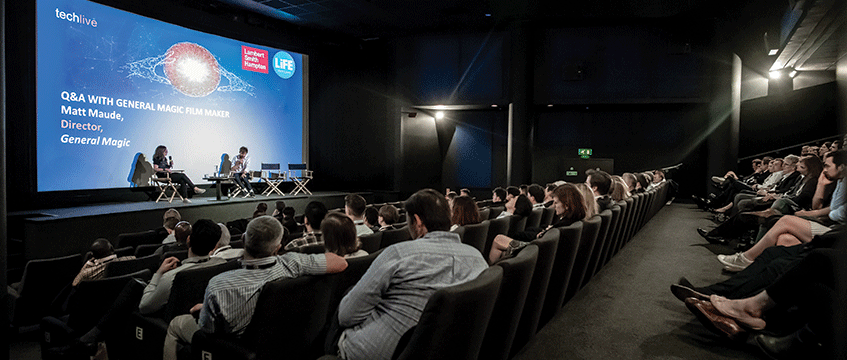Tech Live: the magic of failure
What’s been your biggest failure? Did you get an F in one of your school exams? Fail your driving test? You may have tried to forget your biggest knockback ever happened.
But at EG’s latest Tech Live event, making mistakes was a cause for both celebration and encouragement.
This may seem contradictory, but as EG editor Sam McClary explained, making mistakes is part of the process of innovation. One failure could lead us on to a path that changes the world.
What’s been your biggest failure? Did you get an F in one of your school exams? Fail your driving test? You may have tried to forget your biggest knockback ever happened.
But at EG’s latest Tech Live event, making mistakes was a cause for both celebration and encouragement.
This may seem contradictory, but as EG editor Sam McClary explained, making mistakes is part of the process of innovation. One failure could lead us on to a path that changes the world.
Nothing embodies this idea more than the film that delegates watched at the event: General Magic, named after the Silicon Valley start-up the movie was about.
The General Magic tech team, full of eclectic characters and self-proclaimed geeks, created the world’s first smartphone. But following a series of setbacks and challenges, the product flopped, causing the company to collapse in 2002.
Many people viewed General Magic as a failure, in particular the company’s chief executive, Mac Porat.
However, many of the defunct company’s technicians went on to create even greater things, such as the iPod and iPhone, changing the lives of billions of people.
Following the film, a panel discussion with the film’s director Matt Maude, LiFE Residential joint founder and managing director Jonathan Werth, and Lambert Smith Hampton’s head of bids, Mark Taylor, explored whether property is embracing the art of failing.
Taylor reflected on the biggest knockback of his career, recounting an 18-month project he worked on to develop a product to introduce AI into government operations to improve efficiency.
“It wasn’t as grand as General Magic,” he says. “But there were late nights, there were long hours, we invested evenings and weekends. And eventually we developed a product that a lot of big companies, government, everyone, bought into.”
However, at the last minute, a key funder pulled out, which meant the project could not go ahead. It left Taylor and his team in a difficult position when they were due to unveil the fruits of their labour.
“We were left on the stage in front of a lot of our customers who all believed in the product and absolutely believed that this was going to revolutionise the way central government worked and integrated technology.”
Although the experience had a “profound effect” on him, Taylor learnt from the experience by immersing himself deeper into the world of proptech start-ups to develop a greater understanding of how the industry works and how it needs to move forward.
From this, he has concluded that property is at the precipice of great change but he fears it “can’t pivot quickly enough” to capitalise on this.
One delegate asked the panel asked why property was “so damn boring” when it came to developing and experimenting with new technology.
Maude offered an outsider’s view, saying that property has not yet experienced any major disruption that it needs to adapt to. He argued that the industry should move to become a service provider more like Uber.
“It’s hard for a big ship to move, but you guys are getting overtaken by the speedboats,” said Maude.
So how does real estate make sure it is not being overtaken by these speedboats? The key, said Werth, is collaboration.
“We are inherently selfish in the property industry,” he said. “But as anyone who works in the industry will know, technology is completely the opposite: it is completely collaborative.”
Werth said the profit-driven property industry is set in its ways, and predicts that advances will only be made once a new generation of property professionals arrive with the “ability to collaborate”.
However, he said those more forward-thinking companies can gain a competitive edge by investing in technology and proptech start-ups now.
The panel reached a consensus that property needs to step-up its proptech investment to move faster and start improving its service through technological efficiencies. Only then will it realise what it is capable of.
To send feedback, e-mail lucy.alderson@egi.co.uk or tweet @LucyAJourno or @estatesgazette











